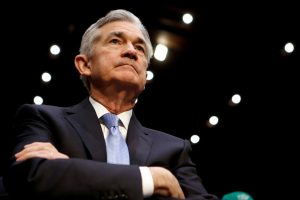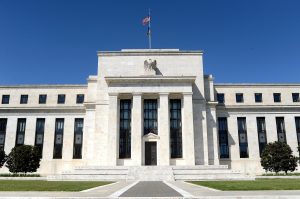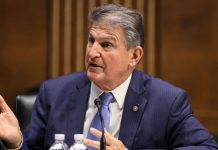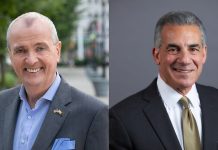If you put your ear to the ground, you can hear the rumble as the juggernaut of inflation trods over the American economic landscape. According to the U.S. Bureau of Labor Statistics, “The Consumer Price Index for All Urban Consumers (CPI-U) increased 0.9 percent in June on a seasonally adjusted basis after rising 0.6 percent in May,” adding “This was the largest 1-month change since June 2008 when the index rose 1.0 percent. Over the last 12 months, the all items index increased 5.4 percent before seasonal adjustment; this was the largest 12-month increase since a 5.4-percent increase for the period ending August 2008.”
Additionally, as noted by NBC, “A separate report from the Labor Department’s Bureau of Labor Statistics noted that the big monthly hike in consumer prices translated into negative real wages for workers. Real average hourly earnings fell 0.5% for the month, as a 0.3% increase in average hourly earnings was more than negated by the CPI increase.”
Inflation, the Media, and The Federal Reserve
Despite this, “The Index of Consumer Sentiment rose to 86.4 from 82.9, a rise of 4.2%. The expectations index rose 6.3% to 83.8 from 78.8” according to U.S. News and World Report. In fact, the main-stream media seems as though it is collectively downplaying this dynamic.
For example, a Wall Street Journal article implores: “If you’re worried about a return to the double-digit inflation of the 1970s and ’80s, relax. There is a lot of angst these days as a result of the stunning 5% inflation rate (for the year ending May 2021) in the last consumer-price index release. We haven’t seen a reading that high in 13 years, but the huge supply shocks of the double-digit days aren’t present, and the Federal Reserve won’t let inflation soar. It is certainly possible, however, that inflation will linger above the Fed’s 2% target for a while.”
Forbes magazine also diminishes the impact of inflation, stating, “Neither the bond market nor the Fed appear especially concerned about the current inflation rate in the U.S. The 10-year U.S. Treasury yield sits at just under 1.5% suggesting that the bond market doesn’t view sustained inflation as much of a risk.”

Ditto for The Federal Reserve, as indicated by Federal Reserve Chair Jerome Powell’s statement that “What we are seeing in the near term is principally associated with reopening of the economy, and not with a tight labor market or tight resource constraints.” Doubling down, Powell tweeted that “The U.S. economy is set to make a turnaround, with increased growth that should provide more jobs.”
In fact, our government seems confident that most of the inflation we see is a temporary phenomenon caused primarily by shortages of materials combined with pent-up demand as a result of turning the corner on the COVID-19 pandemic. White House Council of Economic Advisers member Heather Boushey stated, “Today’s data on inflation is the latest indicator that things are both moving in the right direction and that we have supply-chain hiccups.”

Inflation’s True Impact
But not everyone sees such a rosy scenario for the future. Desmond Lachman, former managing director and chief emerging market economic strategist at Salomon Smith Barney and current contributor to The American Enterprise Institute, frames it this way:
The fundamental flaw in the Fed’s thinking is that it is turning a blind eye to the strong demand-side forces that are all too much in evidence and that are bound to lead to economic overheating towards yearend. Indeed, never before have we had such a powerful demand-side cocktail consisting of the largest peacetime budget stimulus on record, the easiest monetary policy on record, and the unusually large degree of pent-up household demand that was built up during the Covid-related lockdown of the economy last year. That pent-up demand is bound to be released as America returns to a semblance of post-Covid normality.
What Lachman is getting at is the hubris of the Federal Reserve thinking it can control all facets of the economy, including inflation, without causing negative macroeconomic consequences for the average consumer. Much like the premise of Dr. Frankenstein, our government remains convinced they can control the monster they created through a policy of free money and artificially low rates.
Because if you are going to look at inflation, you have to consider it in tandem with wages, especially minimum wages, as this sector of society is the most vulnerable to the perturbations of inflation.
As Charles Hugh Smith writes, “Consider the minimum wage as a reflection of the structural stripmining of labor. According to the BLS inflation calculator, the $1.65 per hour minimum wage I earned in 1970 on Dole’s pineapple plantation now equals $11.66 per hour–hence the calls for $12 per hour minimum wage. But we all know the Consumer Price Index (CPI) has been gamed for decades to understate inflation, and in terms of the goods and services that could be bought with $1.65 in 1970, it would take at least $18 in today’s money to buy the same basket of goods and services–if you include real-world prices for healthcare, childcare, higher education, rent, etc.”
Smith understand the real effect that inflation has on ordinary folks as they struggle to put food on the table, buy clothing for their children, put gas in their car, and, against all odds, save for college and retirement.
Peter Schiff, American stock broker, financial commentator, radio personality and chief global strategist of Euro Pacific Capital Inc states it in no uncertain terms: “What we have is inflation. And it’s that inflation that’s masquerading as a recovery. But the economy itself is a mess. It’s weak. It hasn’t recovered. All we’re doing is spending the money that the Federal Reserve prints.” Schiff further warns us about our profligate federal spending, which is out of control, pushing us towards a $30 trillion national debt level:
So, not only do we have to cancel any future stimulus, but we have to take back the stimulus of the past. We have to deliver either substantial cuts to government spending or tax increases. And not just to the rich, but to average Americans. And so, I don’t see that happening. I just see more and more inflation. And so that is the way all the government is going to be paid for — through inflation, which means consumer prices are going to go through the roof.
As complex as the American economy is, it is still driven by basic forces of supply, demand, and the ever-increasing reliance on spending, resulting ultimately in a fiat currency. So, while it might be difficult to predict the scope and impact of inflation down the road, one thing is for sure: we will eventually have to pay back all of this money, and while inflation may make that easier to finance that repayment, it will undoubtedly saddle our future generations with a financial burden they are unlikely to shrug off without serious consequences. Meanwhile, the juggernaut is undaunted.
At Newsweed.com, we adhere to three simple principles: truth, balance, and relatability. Our articles, podcasts, and videos strive to present content in an accurate, fair, yet compelling and timely manner. We avoid pushing personal or ideological agendas because our only agenda is creating quality content for our audience, whom we are here to serve. That is why our motto is ”Rolling with the times, straining for the truth.”
Your opinion matters. Please share your thoughts in our survey so that Newsweed can better serve you.
Charles Bukowski, the Los Angeles beat poet that captured the depravity of American urban life once said, “There is something about writing poetry that brings a man close to the cliff’s edge.” Newsweed is proud to stand in solidarity and offer you a chance to get close to the cliff’s edge with our first Power of Poetry Contest. Are you a budding bard, a versatile versifier, a rhyming regaler? Do you march to the beat of iambic pentameter, or flow like a river with free verse? If so, here’s your opportunity to put your mad poetic chops to the test. Enter our poetry contest for bragging rights and an opportunity to win some cash!






